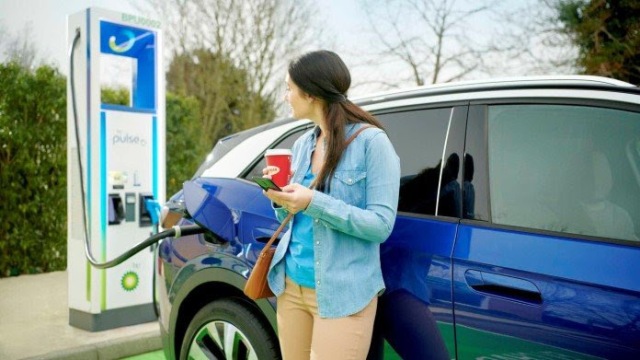The U.S. Transportation Department (USDOT) has proposed minimum standards and requirements for electric vehicle (EV) charging projects funded under a $5 billion government program, Reuters news report said.
“Everyone should be able to count on fast charging, fair pricing and easy-to-use payment,” Transportation Secretary Pete Buttigieg said.
Deploying a nationwide network of fast, EV charging stations is critical to the Joe Biden administration’s efforts to prod more Americans to switch to electric vehicles even as efforts to win substantial additional funding for EVs in Congress have stalled.
The global electric vehicle charging stations market is expected to register a CAGR of 38.7 percent and revenue is projected to increase from $6.72 billion in 2021 to $123.12 billion in 2030, according to a recent report.
By 2030, Biden wants 50 percent of all new vehicles sold to be electric or plug-in hybrid electric models and 500,000 new EV charging stations. He has not endorsed phasing out new gasoline-powered vehicle sales by 2030.
The standards aim to ensure the government-funded EV charging network is user-friendly, reliable, and accessible to all Americans, and interoperable between different charging companies, with similar payment systems, pricing information, charging speeds, and more, USDOT said.
The proposed rule from the Federal Highway Administration would ensure EV owners could use charging stations nationwide that would have “similar payment systems, pricing information (and) charging speeds.
Everybody should be able to find a working charging station when and where they need it – without worrying about paying more or getting worse service because of where they live, Buttigieg said.
“You shouldn’t have to sort through a half dozen apps on your phone just to be able to pay at a charging station.”
The rules would ensure EV stations built nationwide can communicate and operate on the same software platforms.
The rules would require funded EV charging stations to have at least four ports capable of simultaneously fast charging four EVs and bar charging stations from requiring drivers to have a membership to use them.
EV chargers would need to be working 97 percent of the time and set data standards that third-party apps can provide real-time charging status information.
Proposed rules will set certification standards for workers installing, operating, and maintaining EV chargers.
Major companies in the global EV charging market include ABB, Tesla, Chargepoint, BP Pulse, Schneider Electric, Semaconnect Network, EVGO Services, EVBox Group, Eaton Corporation, Shell, Blink Charging, Siemens, Webasto, and Hyundai Motor.

